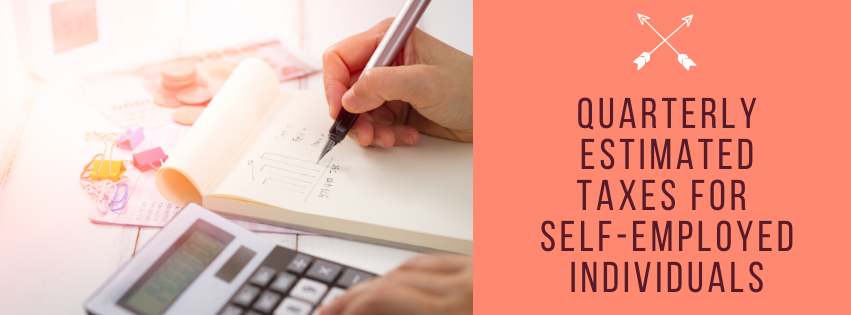In a traditional job, an estimation of your federal and state income tax, as well as social security and Medicare taxes are taken from each paycheck. At the end of the year when you file your tax return, you will either receive a refund for the overage of taxes you paid or will have to pay the difference if not enough money was withheld. However, as an entrepreneur, you don’t have a regular paycheck with taxes withheld unless your company is an entity and you have put yourself on payroll.
While most self-employed individuals know that they still need to file a business tax return using a Schedule C at the end of the year, many business owners don’t know that they actually need to report and pay their taxes quarterly. The government still needs your taxes to operate and paying them at the end of the year is actually considered late. Instead, you must pay quarterly estimated taxes every few months.
While the term for these taxes is “quarterly estimated,” the actual due dates for each “quarter” are not spaced evenly three months apart. The dates that estimate quarterly taxes are due are as follows:
• April 15
• June 15
• September 15
• January 15
If the due date for a quarter falls on a weekend, your payment is due the following business day. For example, this September 15th fell on a Sunday, so that payment due date was adjusted to be Monday, September 16th.
So how do you actually pay your taxes quarterly? Each “quarter,” you are obligated to fill out Form 1040-ES, Estimated Tax for Individuals using your financial data from the last few months of your business’s operation. After filling out the worksheet, you will have an estimation of the amount you owe and must pay it before the quarterly deadline.
When completing your tax return for one year, your CPA will often give you the amounts to pay for the following year based on those figures. If your business has a significant change, alert your preparer so they can make any necessary adjustments prior to the quarterly payment due date.
Failing to pay your quarterly estimated taxes can result in being assessed interest and penalties on what you owe. If you miscalculate your income, however, you are only penalized if the amount you owe exceeds $1000 or more, per the IRS “de minimis amount due” rule. While you cannot pay extra in a given quarter to avoid the penalty, any overage that you pay is rolled over to the next quarter.
In order to avoid the headache of being considered late on your taxes and therefore paying interest on what you owe, it is essential to keep track of your income, fill out form 1040-ES, and pay your estimated taxes prior to each of the four due dates. If you need help with preparing your form and submitting your payment, please consult your tax professional.
